 NEW DELHI(Compass Direct News)-Communists and Christians can be best of pals in defending against the onslaughts of Hindu nationalism, but their differences over Christian educational institutions surge to the fore where the leftists rule-as has just happened in Kerala state.A government body in the southern state of Kerala has recommended banning of religious worship and use of religious inscriptions on the walls in private schools that receive assistance from the state, a move that is believed to be targeted at Christian institutions, according to a report in The Telegraph newspaper on February 11.The newspaper reported that recommendations of the Kerala Education Rules Reforms Committee (KERRC) are being seen as a move to curtail the religious freedom enjoyed by minority communities, mainly Christians, under the constitution. Article 30 of the Indian Constitution grants the right to religious and linguistic minorities to establish and administer educational institutions.Schools run by Christian groups in Kerala hold regular prayers, including Catholic mass, and walls abound with quotations from the Bible. School buildings and premises are often used for religious conventions.The KERRC has also recommended that classes with religious instruction be given only to students who have permission from their parents to participate. It also has suggested that religious teaching be substituted with moral science classes to teach students the values of honesty and non-violence.The committee has further proposed that private schools appoint teachers only from a list prepared by a free agency with statutory powers. This move, Christians fear, might lead to the discrimination of teachers from religious minorities.Christians form close to 20 percent (6.05 million) of Kerala’s population of 31.8 million, with a segment within the state’s Christian community regularly voting for communist parties.But since 2006, church leaders in Kerala have issued 10 pastoral letters against the Communists, which are read out in churches, in an apparent attempt to discourage church members from supporting them.The Asia News agency on February 11 reported that Paul Thelakat, spokesman for the Syro-Malabar Synod and editor-in-chief of Satyadeepam (Light of Truth), said that the recommendations are an attempt “to bring political control” and the “party’s agenda into the school system.”“We stand for the right of private schools to hire their own teachers as a guarantee of their autonomy,” Thelakat told Asia News. “Any eventual restriction on this freedom is a violation, especially for religious minorities. We Christians want our teachers in our schools because it is the only way to preserve and protect the Christian culture and faith."Kerala’s education minister, M.A. Baby, denied the charge, telling The Tehelka weekly, “The government wanted to bring in more transparency by making these schools answerable to local self-governments. Such an action would not curtail any right of the minorities.”Christian leaders in Kerala complain that since the Left Democratic Front state government led by the Communist Party of India-Marxist (CPI-M) came to power in 2006, it has been trying to gain control over their educational institutions to promote atheism in the name of reforms.Dr. Sajan K. George, president of the Global Council of Indian Christians (GCIC) – himself hailing from Kerala state – told Compass that Communists have been targeting Christian institutions since they first came to power there in 1957. Most recently, in October 2006 the state government enacted the Kerala Professional Colleges or Institutions Act to regulate private, self-financing, professional educational institutions run by minorities.
NEW DELHI(Compass Direct News)-Communists and Christians can be best of pals in defending against the onslaughts of Hindu nationalism, but their differences over Christian educational institutions surge to the fore where the leftists rule-as has just happened in Kerala state.A government body in the southern state of Kerala has recommended banning of religious worship and use of religious inscriptions on the walls in private schools that receive assistance from the state, a move that is believed to be targeted at Christian institutions, according to a report in The Telegraph newspaper on February 11.The newspaper reported that recommendations of the Kerala Education Rules Reforms Committee (KERRC) are being seen as a move to curtail the religious freedom enjoyed by minority communities, mainly Christians, under the constitution. Article 30 of the Indian Constitution grants the right to religious and linguistic minorities to establish and administer educational institutions.Schools run by Christian groups in Kerala hold regular prayers, including Catholic mass, and walls abound with quotations from the Bible. School buildings and premises are often used for religious conventions.The KERRC has also recommended that classes with religious instruction be given only to students who have permission from their parents to participate. It also has suggested that religious teaching be substituted with moral science classes to teach students the values of honesty and non-violence.The committee has further proposed that private schools appoint teachers only from a list prepared by a free agency with statutory powers. This move, Christians fear, might lead to the discrimination of teachers from religious minorities.Christians form close to 20 percent (6.05 million) of Kerala’s population of 31.8 million, with a segment within the state’s Christian community regularly voting for communist parties.But since 2006, church leaders in Kerala have issued 10 pastoral letters against the Communists, which are read out in churches, in an apparent attempt to discourage church members from supporting them.The Asia News agency on February 11 reported that Paul Thelakat, spokesman for the Syro-Malabar Synod and editor-in-chief of Satyadeepam (Light of Truth), said that the recommendations are an attempt “to bring political control” and the “party’s agenda into the school system.”“We stand for the right of private schools to hire their own teachers as a guarantee of their autonomy,” Thelakat told Asia News. “Any eventual restriction on this freedom is a violation, especially for religious minorities. We Christians want our teachers in our schools because it is the only way to preserve and protect the Christian culture and faith."Kerala’s education minister, M.A. Baby, denied the charge, telling The Tehelka weekly, “The government wanted to bring in more transparency by making these schools answerable to local self-governments. Such an action would not curtail any right of the minorities.”Christian leaders in Kerala complain that since the Left Democratic Front state government led by the Communist Party of India-Marxist (CPI-M) came to power in 2006, it has been trying to gain control over their educational institutions to promote atheism in the name of reforms.Dr. Sajan K. George, president of the Global Council of Indian Christians (GCIC) – himself hailing from Kerala state – told Compass that Communists have been targeting Christian institutions since they first came to power there in 1957. Most recently, in October 2006 the state government enacted the Kerala Professional Colleges or Institutions Act to regulate private, self-financing, professional educational institutions run by minorities.Common Enemy
Such conflicts come in contrast to the common ground that Christians and communists in India share: not only a united defense against the ideological enemy of Hindu nationalism (Hindutva), but concern for the poor.While defending themselves against Hindutva forces brings Christians and communists together at the national level, said Dr. John Dayal, president of the All India Catholic Union, he noted that “both Christians and communists serve the poor and the marginalized.”The Left front parties, which lend external support to the ruling federal coalition, the United Progressive Alliance (UPA), are believed to be behind the nomination of India’s president, Pratibha Patil, who is known for her stand against “anti-conversion” laws brought in by Hindu nationalist Bharatiya Janata Party (BJP). Hindu extremists commonly cite such laws to harass Christians with false charges of “fraudulent conversion.”Patil, former governor of Rajasthan state, rejected an anti-conversion bill passed by that state’s legislature, ruled by the BJP. She first returned the bill in April 2006, saying it was unconstitutional, and when the BJP resent the bill to her later in May 2006, she sat on it until she referred it to the president on June 20, 2007. The next day, she resigned as governor to run for president.Communist parties decided to support the Congress Party-led UPA because of its secular image and opposition to the Hindu extremist BJP. Secularism in India means equal treatment of all religious communities and affirmative action for their weaker segments, as opposed to detachment of religion from the state, as in the West.The four main parties of India’s Left front are CPI-M, Communist Party of India, Revolutionary Socialist Party and All India Forward Bloc, which together have 59 members in Parliament.Communists in 2005 also introduced an education policy regulating religion in West Bengal, another state ruled by a Left front.Then-state education minister Kanti Biswas made it mandatory for missionary schools affiliated with the primary and secondary boards of education to follow government rules in appointing Christian heads if they wished to continue receiving state funds, reported The Telegraph on October 4, 2005.West Bengal has 515,150 Christians out of the total population of 80.1 million, according to the 2001 Census of the Government of India.Communists also rule the northeastern state of Tripura, but no steps to regulate minority-run institutions has been taken. Legislative elections in Tripura are underway with the Congress Party as the main opposition. Results are expected on Friday (March 7).There are 102,489 Christians out of the total population of 3.1 million in Tripura, according to the 2001 Census of the Government of India.
As in the days of Noah...
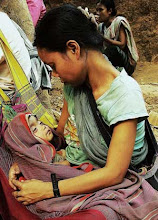
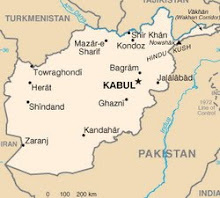
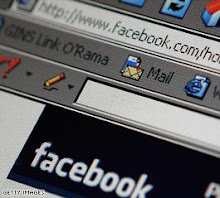

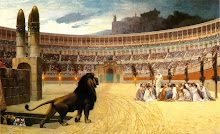
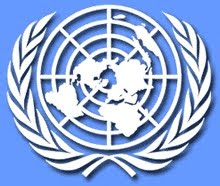




















.bmp)
No comments:
Post a Comment